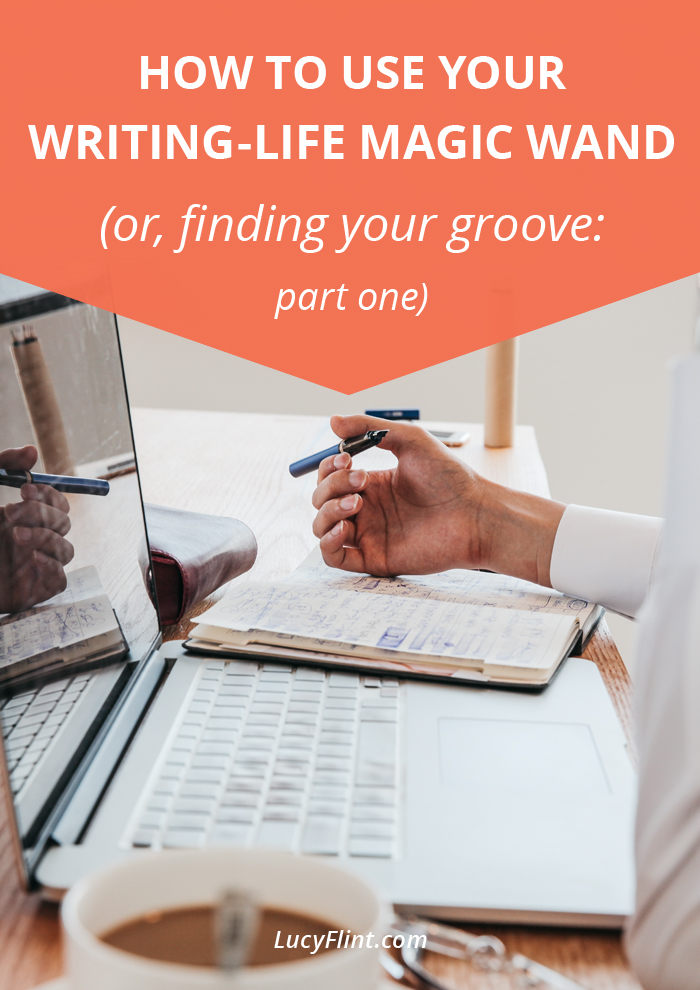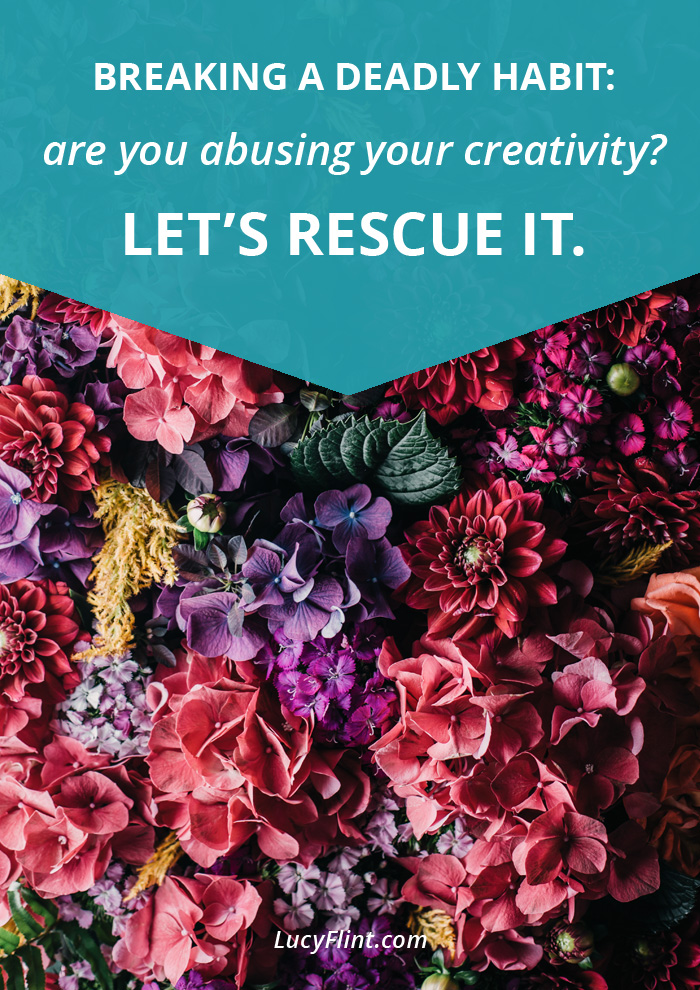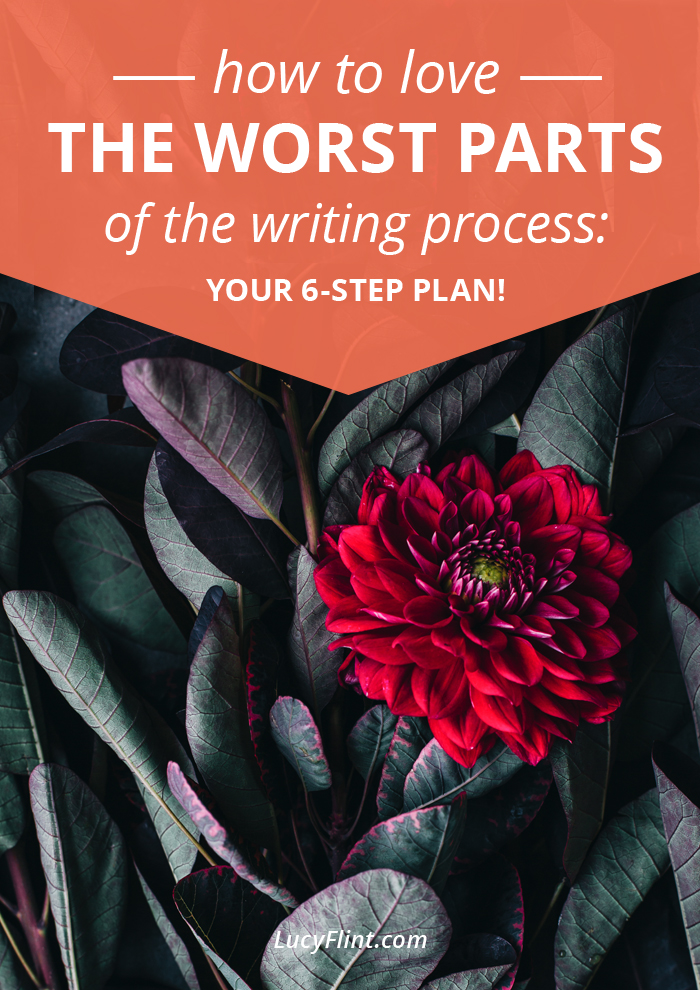Grow Better: Let's Own, Nourish, and Celebrate the Writing Phase You're In
/I've spent nearly my whole life in the midwestern United States. And though we aren't a farming family, I'm used to marking the seasons by what the fields are doing.
Right now, at the start of summer, the bright green corn plants are coming up through the dirt, showing off their first few leaves.
Over the next month, they'll rocket out of the ground, becoming bold walls of dense leaves, perfuming the air—a sweet, dusty, corny smell.
At the end of the season comes the goldening of everything. And suddenly the walls disappear as the machines march through.
In winter the colors all fade, and fields are quiet under November mud or January snow. I'm used to this, my whole life: it's how things work.
Seasons. Seedlings sprout, grow, ripen, disappear. Quiet takes their place. And then it starts again.
The other day I was reading The Sound of Paper, by Julia Cameron—a meditative book of short essays about the creative life and creative droughts. (I'm really liking it, but that's no surprise! It's a lovely and helpful book.)
When I hit the chapter called Seasonality, I sat up straight. Her words illuminated something that's been troubling me:
There is a seasonality, a cyclicity, to creative work. There are ripening times of midsummer, when our ideas bob in our heads like a good crop of apples. There is fall, the time of harvest, when we take those ideas down and collect them. There is a wintertime, when our ideas feel ice-locked and dormant and we must wait them out ... and then there is spring, the stirrings of new ideas and new directions.
You get that?
Our creative projects have a time of blooming, growth, harvesting, and dormancy.
Oh, I loved this so much! Because instantly I saw myself, exactly where I was: deep in a creative wintertime, and no way of knowing how to claw out of it.
Restless, irritated. Like a bear who forgot to hibernate.
Here's what I think: We novelists need to understand this. We need to recognize these seasons in our creative lives, just like we midwesterners do. (If you only have one or two seasons where you are, you'll just have to kinda imagine with me.)
Because once you wrap your mind around the idea of having a creative season, there's a lot that becomes clear, a lot that carries over in that metaphor.
Go with me on this, okay?
In real life seasons, each seasonal shift requires some prep.
There are things that this season is really, really good at—seasonal strengths. (Even the ugly seasons have strengths!)
And then there are some major weaknesses that come along, with each one. (Even the pretty ones.)
That's a reminder that I need to get squarely in my head, because here is my confession:
I have idolized the creative seasons of Summer and Harvest.
Seriously, I love, love, love these creative seasons. I want to live in them forever.
I want to be producing stories at the blistering rate of corn plants (which grow so fast you can literally hear them grow).
And I want to be harvesting like the massive combines that go charging across the land, converting everything to piles of grain—quick, efficient, relentless.
Mega-growth. Mega-production. That's what I've fallen in love with.
That's when it's easier to say out loud, Of course, yes! I am a writer! When faced with inquiries from friends and family: it's so easy to sum up my progress in these seasons. I have something to report.
Everything is growing, growing, growing! I'm writing so fast, and the characters are talking quickly, and it's all going so well!
Or, for harvest: I'm starting the blog! Or, I'm wrapping up the draft! I'm sending it out to readers; I'm planning my publication! Confetti, cheers, marching bands!
And we all get to leave the conversation cheerfully.
But.
You don't have to be an agricultural whiz kid to know: fields can't just go from summer to harvest and back again. It doesn't work like that.
And our creative seasons can't do that either. Our projects don't jump from mega-growth to mega-production and then back to growth again.
We have to go through spring, and we have to go through winter.
Can I be honest? It's hard for me to enjoy a creative springtime. It's such a prickly sort of creative season: how do I explain it, to others and myself?
The idea-seeds are in the earth. I'm watering them (brainstorming!) and watching them (freewriting!) and checking the soil (tending the imagination!).
I'm afraid to breathe too hard on the little ideas. I get nervous when it storms. Is there too much sun, too much shade? Did I plant a bunch of duds?
Everything feels fragile and nebulous, and I'm trusting that the little roots are shooting into the ground, that the stems are straightening, somehow feeling the tug of light, the call to come up, up, up.
Creative spring is hard for me. But what keeps me going is hope: there are seeds, so there is the hope of growth. And maybe something will come out of this, even if I don't know what it looks like yet.
Hope helps us hang on.
... And then there's creative winter.
The seaons that comes along with big, obvious challenges. The other seasons have challenges too, of course. But winter, with its ice and its blizzards and the way it starves your eyes of color—that's the one with the real problems. The light is short, and the dark is long.
It's winter that leaves me speechless when people ask how the work is going. It's winter that I find impossible to explain out loud, or even to myself.
What is there to talk about? What is it that's happening, anyway, when things lie dormant, when everything looks abandoned?
But this is why seeing it as a season is actually really, REALLY helpful. Seriously. It helps, when you call it winter. When you own it.
That little shift helps reframe the whole scenario. It reminds me of what I'm actually dealing with. Because all seasons, however long, do shift. They pass. They change.
And every season has strengths, as well as challenges. Even winter.
No matter which season you're in, it's important to see it as clearly as you can. To name it. And to own that season.
Because here's what happens, to me anyway, when I choose not to own the season: If I'm not intentional about this, I'll try to push myself to be in another season (preferably summer or harvest!).
And when I'm actually, truthfully, in the midst of a creative spring or winter, then this pushing can be downright deadly.
You can't force midsummer growth on a tiny little seedling—it can't sustain it.
You can't harvest before the grain or fruit or story is ready—it will be ruined.
And you can't scout for seedlings when everything is meant to lie fallow—you'll only find frustration.
Let your season be your season. Anything else will bring burnout, immature work, destroyed confidence, and heartbreak.
Look closely at your work right now. At the project you're facing. What season is it in?
Are you doing the seedling work, nurturing little ideas and hoping that they sprout? Are you shoveling fertilizer and sunshine and water over rapidly-growing stories?
Are you making the plans and gathering the resources for a harvest, a launch, a publication? Or are you in the season in between, the one that can seem like nothing is happening. (But oh, my friend, something is happening!)
Oh, and just to keep us all on our toes: you can be in several creative seasons at the same time. One project might be wintering while another is twisting out of the soil, or one might be in the thick of harvest, while secret seedlings send out their first roots with another.
What creative seasons are you in?
Once you know that, here's the exciting part: How can you take specific, concrete steps to support yourself, and care for yourself, in the midst of that season?
Read on for some ideas:
If you're in a creative summer...
Congratulations! Summer is a super-exciting time. Send off some fireworks! Let yourself celebrate!
But keeping up with that pace of growth is no joke. It's important to keep yourself creatively nourished, and to stay connected to the people and rituals that will ground you.
Summer is when I'm tempted to make a habit of overwork. I have to insist on taking breaks, on making sure I get up and go for a walk, play with the dog, or stretch it out with yoga.
In a creative summer, it's easy to burn out wrists, back, eyes. To fall back on crappy snacks that don't really help our brains come up with good stuff. To neglect sleep, and then poison ourselves with waaaaay too much caffeine.
So check in:
How can you support your body while you're writing at such a strong clip? Good food, good movement, good rest?
When you're writing hard and fast, you're burning through some serious imagination fuel. It's worth showing some extra love to your creativity: What are some ways that you can support your imagination? How can you keep feeding it intriguing images, fascinating facts? How can you chase your curiosity and feed your sense of wonder? Stoke your enthusiasm any way you can.
Remember: if you feel like you're starting to get burnt out, or if you're going too fast, there is absolutely zero shame in taking a couple of days off. I promise.
Above all, sustainability is your best, best friend. Keep checking in with yourself, and listening to yourself. Do anything you can to keep your energy up.
More than anything, seek to enjoy this time. Growth is exciting; and watching a story come together is one of the most delicious experiences in a writing life!
If you're in a creative harvest...
First off, have yourself a little party. Even just right here, as you're reading this post: wave your hands in the air, and imagine a whole bunch of confetti falling down on you, because this is awesome.
Harvest means taking your stories, your words, your article—whatever it is that you've bloomed and grown in your head—and setting it out for other people to experience.
That is fantastic. So dance!
... And if you're stubbornly staring at this screen saying, Are you kidding, Lucy? I don't feel like dancing. I feel like throwing up!, then I get you too, because harvest can also kind of, oh, shred your soul a bit.
There is no creative season where Fear leaves us alone, but it has an especially good case to make when we're harvesting. Fear shows us what other people might say, how our work might be received, who's going to stop speaking to us, and so on, and so on.
A million nightmare scenarios, storming through our minds. And it can be enough to make us call off the harvest. Forget about it. Let's just not.
Harvest isn't easy.
But crops don't wait forever. There is a time when it's just right to publish, to post, to hit "send."
So check in:
Do you have a support team? Is there at least one person, or one group, where you can say, Hey, I'm doing this really tough thing! Where can you touch base with people who will keep you on track? Who will cheer you on?
The most important person on that support team is you. How are you talking to yourself in your head? Are you stubbornly on your own side? Cheering yourself on? Holding tight to your own bravery?
Even in a project's final stages, it's important to make sure that you're still taking care of yourself, taking time out to rest, to play, to clear your head. It's those breaks that will give you the focus to do all that final good work! Self-care isn't a luxury, it's a necessity!
Harvest is nerve-wracking, but it's also incredible. It takes guts. Whether your harvest is tiny (sending an email, posting a comment, sending a newsletter), or big (publishing a book, landing a writing job), you owe it to yourself to celebrate.
For serious. Go get that cake.
If you're in a creative springtime...
Oooh, spring! The butterflies-in-the-stomach feeling of tending a lot of tiny ideas, caring for them with an equal feeling of hope and nervousness.
It's a time of unbridled possibility, and that can be exhilarating! Enjoy it!
But spring has its challenges too. We can get discouraged. Spring calls for patience, patience, and patience, as we deliberately brew our projects, as we watch the teeny roots take hold.
We have to learn how to keep a steady hand as we fertilize the soil, as we keep weeds and harsh conditions at bay.
So let's check in:
Perfectionism loves to visit in the spring. It pretends that we can sit and imagine our perfect blossoms, instead of diving in and risking failure. It'll whisper anything to keep us from writing those messy drafts! But creative spring is a time to embrace the mess: don't hold back.
Our fledgling ideas can sprout better with the help of a solid routine, or a good structure around them. If you're just coming out of a creative winter, it can be hard to get back into a groove. Time to rally your best practices, and build a solid working structure for yourself. (Need inspiration? I've got you: here, here, and here.)
As you get into the rhythm of springtime, you have to promise yourself that you will not compare your new growing ideas to anyone else's writerly garden. Okay? Comparison is one of the silent killers of creativity. It's not worth it.
Keep breathing. Growth can be slow. It takes patience.
Real spring is one of the most beautiful times of the year, and a creative spring is no less beautiful. Celebrate the joy of seeds becoming stems becoming buds becoming blooms. (And maybe buy yourself some flowers for your desk?) Keep encouraging yourself, and keep on keeping on.
If you're in a creative winter...
This can be the hardest place to find yourself. Winter is tough, and it can last a lot longer than we'd like. It's easy to focus on the ice patches, the blizzards, and long darkness.
But we can stay warm in the midst of creative winter when we choose to be gentle with ourselves. When we do things that are good for our souls and happy-making for our imaginations.
Find ways to endure the cold by lighting candles for creativity, and cutting cheery snowflakes out of bright paper.
Here are a few ways we can find our trusty boots, our beloved mittens, our best soup recipes. Here's how we can actually winter well:
Right now, make a decision that you will not beat yourself up for being here. Winter is just a thing. It happens. It doesn't make you a bad writer, a bad creative, or any other shamefilled label that we might want to assign ourselves. Take yourself off the hook. Give yourself grace.
One thing that winter is really good for is naptaking. I'm serious. This season is when you can catch up on rest, both physically and creatively. Take super good care of your body. Take all producing pressure off. (Sometimes we actually need it to be winter, for exactly this reason!)
Nourish. Use winter as a time to put into your imagination, indiscriminately. Since you don't have to research for a specific project, you can just follow your own curiosity. This is actually a gift, and you're allowed to treat it like one. :)
Read. Read a lot. When I decide to really embrace winter, I usually end up reading a TON. Go to your library and check out more books than you can carry. Binge-read fiction for a few weeks. Grab stacks of non-fiction titles that intrigue you. Plunge into new subjects, rediscover old favorites.
Play. I know. It can be hard. But sometimes you need to just cut loose. Find ways to love your creative self by playing games, by picking up a different artistic skill for a while. Try your hand at collage, or calligraphy, or watercolors. Or get messy with sculpture, or repaint every room in your house. Stir it up.
Fertilize your soil, and ready your tools. You can keep learning your craft, even if you aren't working on something actively, by reading good books on writing. (Steer clear of angry, cynical books. Only grab the yummiest sort.)
Let me just say this one again: Be relentlessly kind to yourself.
It can be hard to love winter. But when you really and truly let yourself off the hook, it can be a beautiful time. It can point you back to places you might have been neglecting: deep rest, deep refilling.
You're allowed to investigate creativity for its own sake, instead of so that you can meet a deadline, or crank something out. You're allowed to run down the path of your curiosity, without it needing to pay off immediately.
So choose to give yourself a gift in your creative wintertime. Embrace rest, embrace care. Spread a little love over your writing life.
Wherever you are, my friend, consider this: What does it look like to truly honor the season that you're in? To embrace its strengths, and gently account for its weaknesses? To accept it for what it is, and to celebrate it—difficulties and all?
For me, after an on-again/off-again winter that lasted a year and a half (I'm not making that up), I am in the midst of a springtime: there are so many little seeds in the ground right now, fresh growth on some older projects, and I'm excited! Committing myself to patience, and dancing with hope!
How about you?
















